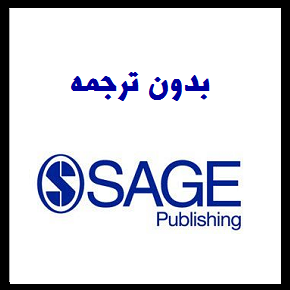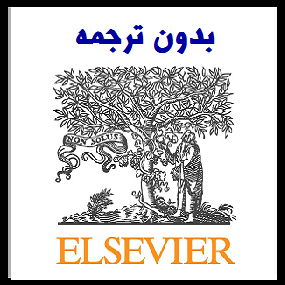مقاله انگلیسی تاثیر اعضای کمیته حسابرسی بر انتخاب گزارشگری مالی (2018 Sage)


| عنوان فارسی مقاله | اعضای هیئت مدیره با استایل: تاثیر اعضای کمیته حسابرسی و سبک های شخصی آنها بر انتخاب گزارشگری مالی |
| عنوان انگلیسی مقاله | Board Members With Style: The Effect of Audit Committee Members and Their Personal Styles on Financial Reporting Choices |
| نمونه ترجمه کامپیوتری | 1 مقدمه
سؤال در مورد چگونگی اثرگذاری بر عملکرد گزارشگری مالی شرکت، به طور گسترده در ادبیات حسابداری بررسی شده است (Dechow، Ge، & Schrand، 2010). مطالعات پیشین با شناسایی عوامل در سطح بازار (Leuz، Nanda، & Wysocki، 2003)، سطح شرکت (Klein، 2002؛ Lang، Raedy، & Wilson، 2006)، و اخیرا سطح مدیریت فردی (Ge ، ماتسوموتو، و ژانگ، 2011). با این حال، مقالاتی که در بررسی تاثیر افراد در تصمیم گیری های گزارشگری مالی شرکت های بزرگ، بر مدیران شرکت های بزرگ، اغلب مدیران اجرایی و مدیران مالی، تمرکز دارد. این مقاله به بررسی تاثیر انتخاب های گزارشگری مالی شرکت های گروهی مختلف از اعضای کمیته حسابرسی می پردازد. به طور خاص، این مقاله بررسی می کند که آیا تصمیم گیری های گزارشگری مالی تحت تاثیر تفاوت های ویژگی های فردی در میان اعضای کمیته حسابرسی است که از عوامل مختلفی از قبیل شخصیت، باورهای اخلاقی و تجربیات فردی که مستقیما قابل مشاهده نیستند، ایجاد می شود. کمیته های حسابرسی شرکت های دولتی نقش “نظارت بر فرایندهای حسابداری و گزارشگری مالی صادر کننده و ممیزی صورت های مالی صادر کننده” را بازی می کنند. “2 چنین نقش شامل” بررسی و بحث در مورد مدیریت حسابرسان داخلی و خارجی است صورتهای مالی حسابرسی سالیانه. . . و صورتهای مالی فصلی “(Braiotta، 2004). از این رو، صورتهای مالی یک شرکت محصول نهایی فرایند گزارشگری است که شامل مدیریت و کمیته حسابرسی است.کمیته ممیزی گاهی اوقات، با حل اختلاف بین حسابرسان خارجی و مدیریت، جمع آوری اطلاعات از حسابرسان داخلی و / یا نظارت بر انطباق مدیریت با استانداردهای گزارشگری مالی و نظارت بر حساب های مالی در طی این روند، تغییرات قابل توجهی در گزارش های مالی می دهد (Caskey، Nagar & Petacchi ، 2010) ادبیات پیشین مشخص کرده است که ویژگی های مختلف کمیته حسابرسی که با کیفیت گزارشگری مالی مرتبط است، مانند استقلال (Klein، 2002)، تخصص (Be’dard، Chtourou، & Courteau، 2004) و مشغولیت (Tanyi & Smith، 2014). یکی از ویژگی های مشترک این مطالعات این است که آنها بر ویژگی های قابل توجه کمیته حسابرسی متکی هستند: برای مثال، تخصص اعضای کمیته ممیزی معمولا توسط مدارک حرفه ای آنها (به عنوان مثال، حسابدار رسمی خبره [CPA] یا متخصص حسابدار خبره)، و استقلال با توجه به این که عضو یک کارمند فعلی یا سابق است، یک عضو خانواده یک افسر اجرایی است، یا دریافت غرامت از شرکت به غیر از عضو هیئت مدیره (Klein، 2002). این ویژگی های قابل مشاهده، در حالی که معنادار است، ممکن است تصویر کامل از اینکه چگونه اعضای کمیته ممیزی می توانند گزارش مالی شرکت های خود را تحت تاثیر قرار دهد، نیافتند. توجه؛ (این ترجمه توسط نرم افزار انجام شده و ویرایش نشده است و احتمال وجود اشتباه در آن وجود دارد. در صورت ثبت سفارش، ترجمه توسط مترجمین مجرب انجام خواهد شد. برای مشاهده نمونه ترجمه های تخصصی و اخیر مترجمین جهت اطمینان از کیفیت ترجمه، اینجا کلیک نمایید.) |
| نمونه مقاله انگلیسی |
Introduction The question of what influences a firm’s financial reporting practice has been examined extensively in the accounting literature (Dechow, Ge, & Schrand, 2010). Prior studies approach this question by identifying factors at the market level (Leuz, Nanda, & Wysocki, 2003), the firm level (Klein, 2002; Lang, Raedy, & Wilson, 2006), and more recently the individual manager level (Ge, Matsumoto, & Zhang, 2011). However, the papers that study the influence of individuals on corporate financial reporting decisions focus on corporate executives, mostly CEOs and CFOs.1 This article investigates the impact on corporate financial reporting choices of a different group of individuals: audit committee members. Specifically, this article examines whether financial reporting decisions are affected by differences in individual characteristics among audit committee members that are generated from various factors such as personality, ethical beliefs, and personal experiences that are not directly observable. Audit committees of public firms play the role of ‘‘overseeing the accounting and financial reporting processes of the issuer and audits of the financial statements of the issuer.’’۲ Such a role involves ‘‘reviewing and discussing with management, internal and outside auditors the annual audited financial statements . . . and quarterly financial statements’’ (Braiotta, 2004). Hence, the financial statements of a firm are the end product of a reporting process which involves both management and the audit committee. The audit committee sometimes makes substantial adjustments to the financial statements during this process, by resolving the dispute between outside auditors and management, gathering information from internal auditors, and/or overseeing management’s compliance with financial reporting standards and regulation (Caskey, Nagar, & Petacchi, 2010). Prior literature has identified various audit committee characteristics that are associated with financial reporting quality, such as independence (Klein, 2002), expertise (Be´dard, Chtourou, & Courteau, 2004), and busyness (Tanyi & Smith, 2014). A common feature of these studies is that they rely on observable characteristics of the audit committee: For example, the expertise of audit committee members is usually captured by their professional qualifications (e.g., Certified Public Accountant [CPA] or Certified Financial Analyst), and independence is measured by whether the member is a current or former employee, is a family member of an executive officer, or receives compensation from the firm other than for being a board member (Klein, 2002). These observable characteristics, while meaningful, may not capture the full picture of how audit committee members can influence their firms’ financial reporting. In particular, psychology studies find that an individual’s job performance and career outcomes are affected by numerous factors, such as personality traits (e.g., Hurtz & Donovan, 2000), self-perception (Judge, Erez, & Bono, 1998), ethical beliefs (H. Koh & Boo, 2001), and childhood experience (Blustein, Walbridge, Friedlander, & Palladino, 1991), to name but a few. These factors are often not directly observable but are likely to affect the effectiveness of monitoring by audit committee members, and thus in turn influence firms’ financial reporting practices. The goal of this study was to examine the overall effect of audit committee members on financial reporting that arise from these unobservable characteristics. Following prior literature, I label these characteristics as ‘‘styles’’ of audit committee members (Bertrand & Schoar, 2003). |
| سال انتشار | 2018 |
| ناشر | Sage |
| مجله | مجله حسابداری، حسابرسی و امور مالی – Journal of Accounting Auditing & Finance |
| نوع مقاله | ISI |
| کلمات کلیدی | کمیته حسابرسی، سبک اعضای هیئت مدیره، گزارشگری مالی، نظریه رده بالا، مدیریت سود |
| کلمات کلیدی انگلیسی |
audit committee, individual board member style, financial reporting, upper echelon theory, earnings management |
| صفحات مقاله انگلیسی | 28 |
| مناسب برای رشته | حسابداری |
| مناسب برای گرایش | حسابرسی |
| توضحیات | این مقاله انگلیسی جدید بوده و تا کنون ترجمه نشده است. جهت ثبت سفارش ترجمه از لینکهای زیر استفاده نمایید. |
| دانلود مقاله انگلیسی | ○ دانلود رایگان مقاله انگلیسی با فرمت pdf (کلیک کنید) |
| سفارش ترجمه فارسی | ○ سفارش انجام ترجمه و تایپ این مقاله (کلیک کنید) |
| سایر مقالات این رشته | ○ مشاهده سایر مقالات رشته حسابداری (کلیک کنید) |


